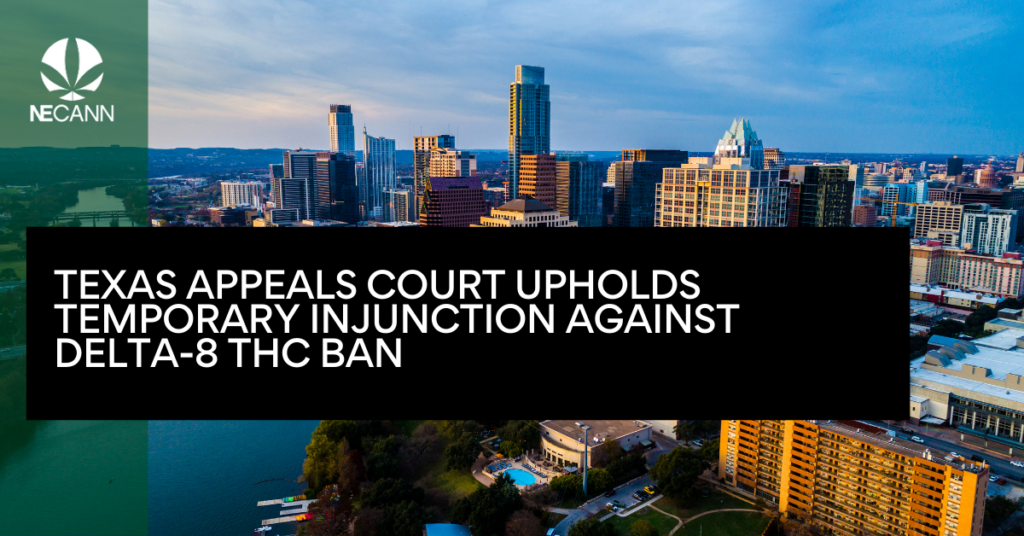A Texas appeals court has upheld a temporary injunction against the state’s ban on delta-8 THC. This decision marks a win for a coalition of businesses and consumers who have been challenging the ban’s legitimacy.
The temporary injunction was initially issued in response to enforcement actions taken by the Texas Department of State Health Services and its commissioner. These officials had declared, through an update to a consumable hemp program webpage, that products exceeding 0.3% delta-9 THC were legal, but all other forms of THC, including any concentration of delta-8, were deemed illegal Schedule I controlled substances.
In response to this ban, CBD retailer Hometown Hero, Create A Cig Temple vape store, and consumers Darrell Suriff and David Walden filed a lawsuit. They alleged that the Texas Department of State Health Services did not adhere to the Texas Health & Safety Code and the Administrative Procedure Act’s rulemaking criteria.
A three-member panel of the Third Court of Appeals confirmed that the group had legal standing to challenge the department’s decision and upheld the temporary injunction.
The businesses affected by the ban reported significant drops in sales and job cuts. They also highlighted personal stories of individuals who benefited from hemp-based products, including help with overcoming opioid addiction challenges. Testimonies from various stakeholders, including the Texas Veterans of Foreign Wars’ director of government and public affairs, played a pivotal role in swaying the judges.
The justices stated, “Viewing this evidence in the light most favorable to the trial court’s ruling, we conclude that there was some evidence to support the trial court’s finding of probable, imminent, and irreparable injury in the interim.”
Hometown Hero CBD, in a public statement, expressed their satisfaction with the ruling, stating, “This ruling helps save an $8 billion industry, and thousands of jobs, but it also gives adult consumers and veterans continued access to hemp-based cannabis products vital to their everyday lives.”
Amanda G. Taylor, the attorney representing the challenging group, emphasized that the commissioner and the agency had attempted to act outside the bounds of the legislative process, without appropriate public notice or an opportunity to be heard.
If the state chooses not to appeal the recent opinion, the case will return to the lower court for trial. Taylor contends that the case aligns with the 2019 statute legalizing consumable hemp products.
This legal development follows a recent ruling in Arkansas where a federal judge found that new state restrictions on delta-8 violated the Dormant Commerce Clause and the 2018 Farm Bill, offering hope to hemp-based product makers.
Texas’ journey with hemp has been marked by challenges, including a pay-to-play scheme that resulted in indictments and raised questions about the proximity of state officials to the controversy.




